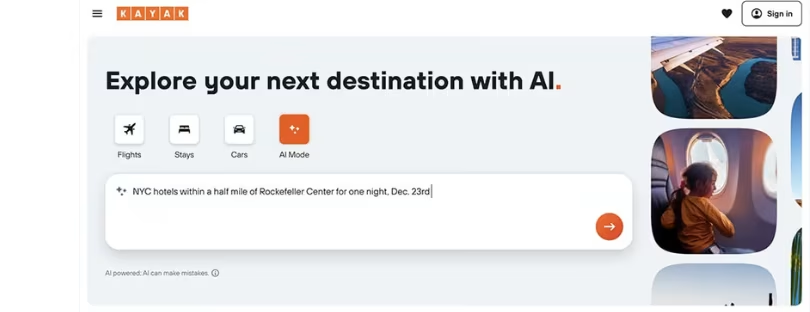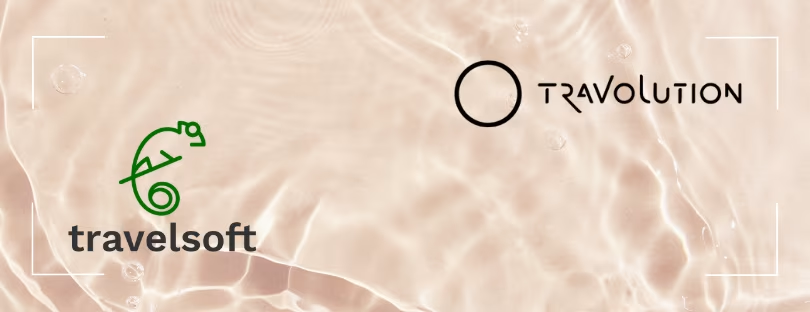
80% of Tourism Companies Now Use AI to Enhance User Experience
Artificial Intelligence (AI) has become a game-changer in many sectors, and tourism is no exception. With 80% of companies in the tourism sector already leveraging AI in at least one area of their operations, it’s clear that this technology is not just a fleeting trend. AI in tourism
In this article, we’ll explore how AI is reshaping the tourism landscape, enhancing customer experiences, and boosting operational efficiency. Let’s dive into the details.
The Rising Wave of AI in Tourism
Adoption of AI: A Growing Trend
The tourism industry is embracing AI at an unprecedented rate. According to the Ascendant report by Minsait, 80% of tourism companies are utilizing AI in some capacity. This widespread adoption highlights AI’s role as a critical tool for innovation and competitive advantage.
Why Are Companies Turning to AI?
So, what’s driving this shift? For 67% of companies, the primary motivation is to optimize processes and increase efficiency. But it’s not just about cutting costs or speeding up operations; AI is also enhancing customer experiences, leading to higher conversion rates and better customer retention.
AI in Customer Experience: A New Era of Personalization
The use of AI in customer experience is particularly noteworthy. About 40% of tourism companies report that integrating AI has significantly improved their understanding, relationships, and interactions with customers. This isn’t surprising when you consider the capabilities of AI in delivering hyper-personalized recommendations and services.
Key Areas Where AI is Making an Impact
1. AI in Reservation and Service Sales Management
One of the most significant impacts of AI is in the management of reservations and sales of tourism services. Approximately 33% of companies are developing specific use cases, such as hyper-personalized recommendation systems that tailor suggestions to individual preferences and behaviors. This level of customization not only improves customer satisfaction but also drives sales.
2. Logistics and Operations Management
AI’s influence extends beyond customer-facing applications. A third of companies in the tourism sector are utilizing AI to manage logistics and operations. This includes everything from optimizing fleet and route management to handling inventory and supply chain logistics. AI’s ability to analyze large datasets in real time makes it an invaluable tool for these complex tasks.
3. Marketing and Promotion
AI is also transforming how tourism companies market and promote their services. By analyzing customer data and predicting trends, AI helps companies create more targeted and effective marketing campaigns. This predictive analysis is crucial for staying ahead in a highly competitive market.
4. AI in Customer Service at the Destination
AI’s role doesn’t end once a customer makes a reservation. About 22% of companies use AI to enhance the customer experience at the destination. This can involve anything from managing customer service queries through chatbots to optimizing local services based on real-time data.
5. Fleet and Route Management
Managing fleets and routes efficiently is a logistical challenge that AI is helping to simplify. AI-powered tools can analyze traffic patterns, weather conditions, and other variables to optimize routes, reducing travel time and costs. This not only benefits the company but also enhances the customer experience by ensuring timely and efficient transportation.
Challenges in AI Adoption
Overcoming Barriers to AI Integration
Despite its benefits, adopting AI in the tourism industry isn’t without challenges. Companies often face obstacles such as a lack of advanced talent and insufficient governance and security mechanisms. Addressing these challenges is crucial for fully realizing AI’s potential.
The Talent Gap: A Major Hurdle
One of the most significant barriers to AI adoption is the talent gap. Many tourism companies struggle to find professionals with the advanced skills needed to implement and manage AI systems effectively. This shortage of talent can slow down the integration process and limit the scope of AI applications.
Governance and Security Concerns
Another challenge is ensuring proper governance and security. With AI handling sensitive customer data, companies must implement robust security measures to protect this information. Additionally, establishing clear governance frameworks is essential for ensuring that AI is used ethically and responsibly.
Consumer Perspective: Embracing AI-Driven Travel
AI in Travel Planning: A Consumer Favorite
It’s not just companies that are benefiting from AI; consumers are also embracing this technology. A study by Oliver Wyman found that 40% of respondents have already used generative AI to plan their trips. The ability to create detailed itineraries tailored to individual preferences is a significant draw for consumers.
Satisfaction with AI Recommendations
The same study revealed that more than 75% of consumers are satisfied or very satisfied with the AI-generated suggestions they receive. This high level of satisfaction underscores AI’s effectiveness in meeting consumer needs and preferences.
The Future of AI in Travel Planning
As AI continues to evolve, we can expect even more sophisticated tools for travel planning. These tools will likely offer even greater levels of personalization, making travel more enjoyable and hassle-free for consumers.
The Future of AI in Tourism
AI as a Driver of Innovation
Looking ahead, AI is poised to drive even more innovation in the tourism sector. Companies that embrace AI strategically will be well-positioned to lead in a more competitive and dynamic market.
AI’s Role in Emerging Trends
AI will also play a crucial role in identifying and responding to emerging trends. Whether it’s predicting shifts in consumer behavior or optimizing new types of travel experiences, AI will be at the forefront of the industry’s evolution.
Strategic Integration for Success
For companies to succeed in this AI-driven future, they need to integrate this technology strategically. This means not just adopting AI tools but also aligning them with broader business goals and ensuring that they are used ethically and responsibly. AI in tourism
Conclusion: AI is Here to Stay
In conclusion, AI is no longer just a buzzword in the tourism industry. It’s a powerful tool that’s driving innovation, improving customer experiences, and boosting operational efficiency. As more companies adopt AI, those that do so strategically will be best positioned to thrive in this rapidly evolving landscape.










